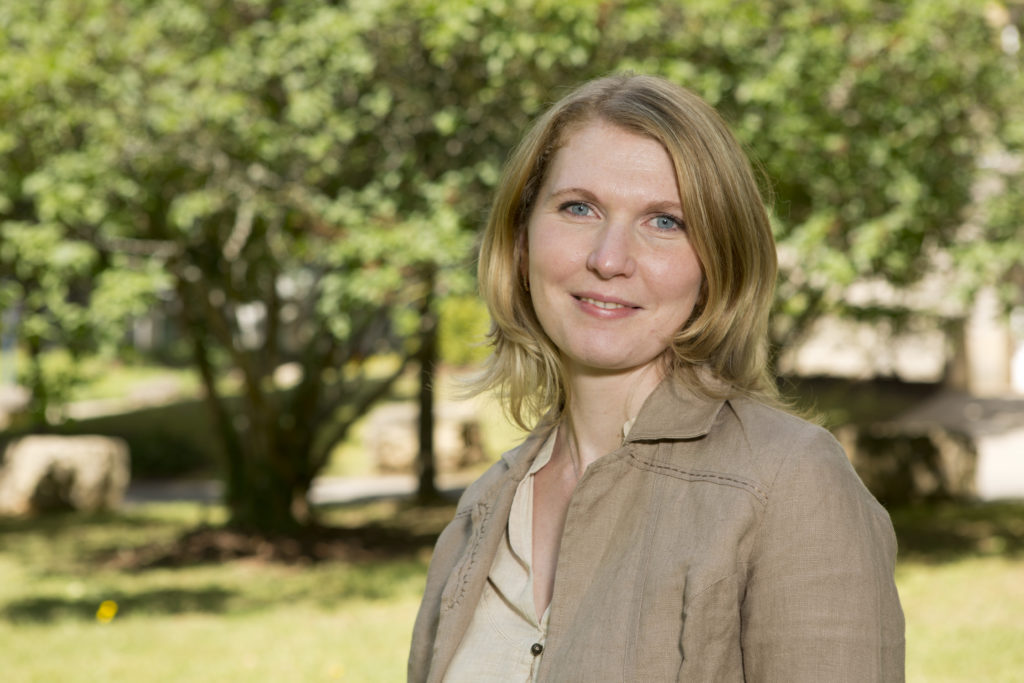Gender Equity

We sat down with Elena Varroy to talk about her path in ICT project management and her views on women working at the intersection of technology and academia.
Elena Varroy is the Team Leader of Project Coordinators at SnT. With almost a decade of experience at the University of Luxembourg, she holds Master’s degrees in International Affairs & Finance, and Public Administration. Prior to joining the University, she gained valuable expertise working in the private sector in France. Currently, she leads a team of project coordinators dedicated to supporting researchers in securing funding at national and international levels, as well as the successful implementation of their research projects.
What do you work on today?
My mission is to enable my team to support researchers as best as possible with their projects. As project coordinators, we aim to relieve scientists from administrative and financial burdens, allowing them to dedicate their time and energy to their true passion—research. However, our responsibilities extend beyond these tasks. We work closely with researchers every day, helping them transform complex research questions into comprehensive proposals and sound research projects. We provide valuable guidance and expertise throughout the whole research project cycle. Our activities encompass various crucial aspects, including identifying suitable funding opportunities, facilitating the identification of appropriate project partners or collaborators, ensuring fulfilment of all necessary requirements, regulations and processes throughout the research journey. By shouldering these responsibilities, we provide researchers with the necessary support and freedom to explore their ideas, drive scientific progress, and push forward the boundaries of science and technology.
What has led you to pursue a career in technology?
With a background in International Affairs and Finance, my passion has always been project management. I find great fulfillment in shaping projects from proposal to implementation and witnessing the tangible impact.
Early on in my career, I had the privilege of working on European projects in technology and research, particularly in the field of ICT. I was captivated by the innovative nature of technology and thus decided to remain in this dynamic domain. Moreover, the daily experience of working alongside the researchers is incredibly enriching.
What excites me is the constant opportunity for renewal. Moving on to each new initiative, which could be something completely different than before, always gives me a positive feeling.
Was there ever a challenge that you had to face as a woman?
I consider myself fortunate as I have not experienced substantial challenges in my career due to my gender. However, I have observed that across the technology research field in general, women are underrepresented for different reasons. This poses challenges in terms of acceptance and integration within the work environment.
We are very lucky to be part of a remarkably diverse environment both at SnT and generally in Luxembourg. I firmly believe that embracing diversity in all its forms is a real key to innovation, because it broadens perspectives, stimulates open-mindedness, and paves the way for out-of-the-box solutions. Being part of research support staff represents a supplementary challenge related to effectively conveying the added value that support teams bring to research: our day-to-day tasks and responsibilities differ from those of researchers, yet they complement and support their work!
What do you think society could do to encourage girls and young women to pursue a career in technology?
Generally, society should facilitate the inclusion of girls in scientific activities, starting from their school years. But it is a much broader topic: we need a collective societal effort that begins with families and the education system, aiming to break free from stereotypes related to diversity and gender. Any child, regardless of gender, should feel free to choose any kind of activity they like. Only this way will they become adults free to pursue any career they like, and in turn become role models for the next generation, inspiring them to pursue their own passions and break gender barriers in research and industry.
Do you have a role model?
Not really, I don’t have one specific role model per se; however, in different situations or when making decisions, I find inspiration from important people in my life—researchers, colleagues, or other professionals whom I admire. I observe how they have tackled specific challenges and learn from their experiences. They come from various genders and cultures, but, naturally, there are many women whom I greatly admire and look up to.
This article was originally published on 21 November 2023.
